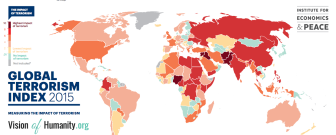 Two new resources for accessing open data begin this Research Desk update.
Two new resources for accessing open data begin this Research Desk update.
We’ve also included data-rich resources on migration and a special section on terrorism. Hope you find this update useful. Have a suggestion for The Research Desk? Email us here.
Reference and Research Databases
European Commission Launches Open Data Portal
 240,000 Data Sets from 34 Countries
240,000 Data Sets from 34 Countries
From an Introductory Blog Post:
“Currently, the portal includes over 240.000 datasets from 34 European countries. Information about the data available is structured into thirteen different categories ranging from agriculture to transport, including science, justice, health and so on. This enables you to quickly browse through categories and feel inspired by the data made accessible.
“To help access the data made available in different languages, we’ve set up a multilingual search interface. In order to translate also the metadata, the important descriptors of data machine-translation technology is used. This should help the you (developers, companies, journalists and interested users) to find data from around Europe on subjects of your interest. Re-use of data will get this way easier, allowing for example a developer in Bratislava to be in a better position to develop an app based on data published by the City of Oslo with Norwegian metadata annotations.”
Direct to New European Data Portal
Open Data Inception Project’s Online Directory
 Links to 1,600 Open Data Portals Worldwide
Links to 1,600 Open Data Portals Worldwide
A directory of open data portals from such sites as OpenGeocode, DataPortals, Quora, and StackExchange. According to a blog post by OpenDataSoft: The OpenDataSoft platform allows users to add different data sources to a single dataset. Thus, we added the data that we collected, as well as a link to an online table where we were able to add data by hand, keeping them permanently synchronized to their main dataset.”
Direct to OpenDataInception.io Directory
New Research Reports
 World Migration Report 2015
World Migration Report 2015
Source: International Organization for Migration (IOM)
From an IOM Introduction:
“The first two chapters of the report set out the main trends in cities and migration, examine the various urban settings which have experienced recent growth of internal or international or even both types of migration flows, highlighting the diversifying migration flows. Chapter 3 looks at aspects of urban vulnerabilities in general – livelihood and mobility strategies, barriers to accessing resources and specific forms of vulnerabilities, as they affect the populations most at risk including migrant women. Chapter 4 explores how urbanization and new mobility patterns can contribute to urban poverty reduction, growth and development and enhance migrant well-being. Chapter 5 studies some of the urban governance conditions for migrant inclusion and partnerships.”
Available in: English, French, and Spanish
From the European Parliament Research Library
 Fingerprinting Migrants: Eurodac Regulation
Fingerprinting Migrants: Eurodac Regulation
Migration: An Unprecedented Challenge to the EU
EU Approach to the Paris Climate Conference
The European Council and the UN Climate Change Conference in Paris 2015 (COP 21)
Additional Environmental and Climate Resources from the EU
From the UK House of Commons and House of Lords Libraries
Seeking a Negotiated Solution in Syria
From the U.S. Congressional Research Service
The Islamic State — Frequently Asked Questions
Coalition Contributions to Countering the Islamic State
Special Section: Terrorism
Source: START (National Consortium for the Study of Terrorism and Responses)
Mass-Fatality, Coordinated Attacks Worldwide, and Terrorism in France
Source: START (National Consortium for the Study of Terrorism and Responses)
Source: Institute for Peace and Economics
Source: University of Chicago
Global Terrorism: Trends in 2014/2015
Source: European Parliament
Source: U.S. State Department
Source: START (National Consortium for the Study of Terrorism and Responses) (Note: methodological problems in the GTD’s data on suicide attacks have been reported.)
Gary Price (gprice@mediasourceinc.com) is director of GIJN’s Resource Center and a librarian, writer, consultant, and frequent conference speaker. He is the author of INFOdocket (@infodocket) for Library Journal, and was a co-founder and senior editor at ResourceShelf and DocuTicker. He previously served as contributing editor to Search Engine Land and director of Online Information Services at Ask.com.

